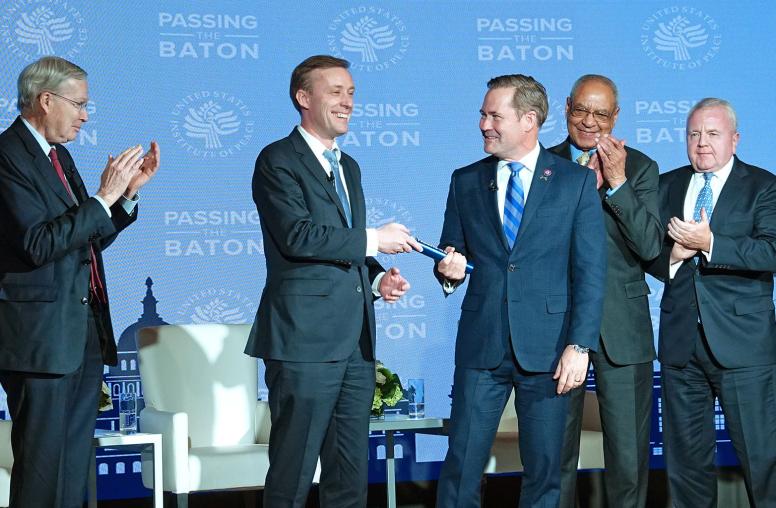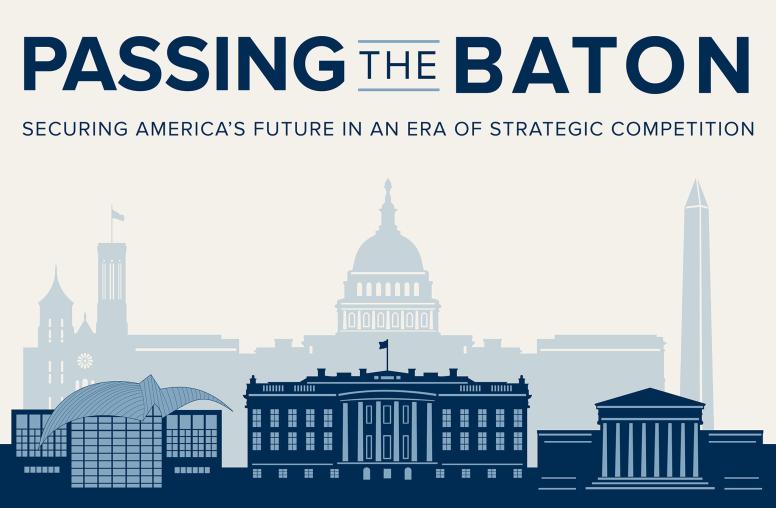U.S. Institute of Peace Lights Headquarters Blue for U.N. Anniversary
The United States Institute of Peace will light its headquarters in blue on October 24 in honor of the United Nations’ 70th anniversary. USIP’s dramatic building, on the National Mall overlooking the Lincoln Memorial and the Potomac River, is perhaps Washington’s most prominent architectural tribute to global peacebuilding.

USIP will join landmarks worldwide—from Australia's Sydney Opera House to Egypt’s Great Pyramids, to New York’s Empire State Building—that will be illuminated in “U.N. blue” to honor the United Nations’ founding and its commitment to resolving conflicts. As America’s national institution for advancing international peace and security, USIP works with the United Nations—and with governments, humanitarian groups, citizens’ movements and community leaders—to reduce and resolve violent conflicts around the world.
The United Nations Charter took effect on October 24, 1945, a year after the United States and key World War II allies prepared the proposal in a conference at Washington’s Dumbarton Oaks estate. President Franklin D. Roosevelt, in consultation with Congress, championed the United Nations’ creation. He died just days before its founding conference in San Francisco in April 1945.
Seven decades later, the United Nations deploys more than 118,000 peacekeeping troops, police and civilians, drawn from 128 countries, to calm violent conflicts and build security around the world. It contributes to the building of peace with its work in human rights, development and humanitarian aid. USIP is a partner in many of these missions. In cooperation with the U.S. Department of State, for example, the Institute trains U.N. peacekeepers in skills such as conflict management and mediation. At the request of Congress in 2004, USIP convened a task force to assess issues of U.N. effectiveness and reform, led by former U.S. House Speaker Newt Gingrich and former U.S. Senate Majority Leader George Mitchell.
More than 3,300 U.N. peacekeepers from 120 countries have died in peace operations, which have intensified dramatically, notably since the U.N. peacekeeping system won the Nobel Peace Prize in 1988. The U.S. government’s National Security Strategy recognizes the United Nations, including its development and peace work, as an essential partner for securing the U.S. interest in fostering a more stable world.
Since the United Nations’ declaration last month of a new global development plan, the Sustainable Development Goals, the Institute has committed in particular to advancing “Goal 16,” which promotes “peaceful and inclusive societies” with “access to justice for all.” On November 4, USIP will host U.N. Deputy Secretary-General Jan Eliasson for a discussion of how the international community can best begin working toward these goals.



